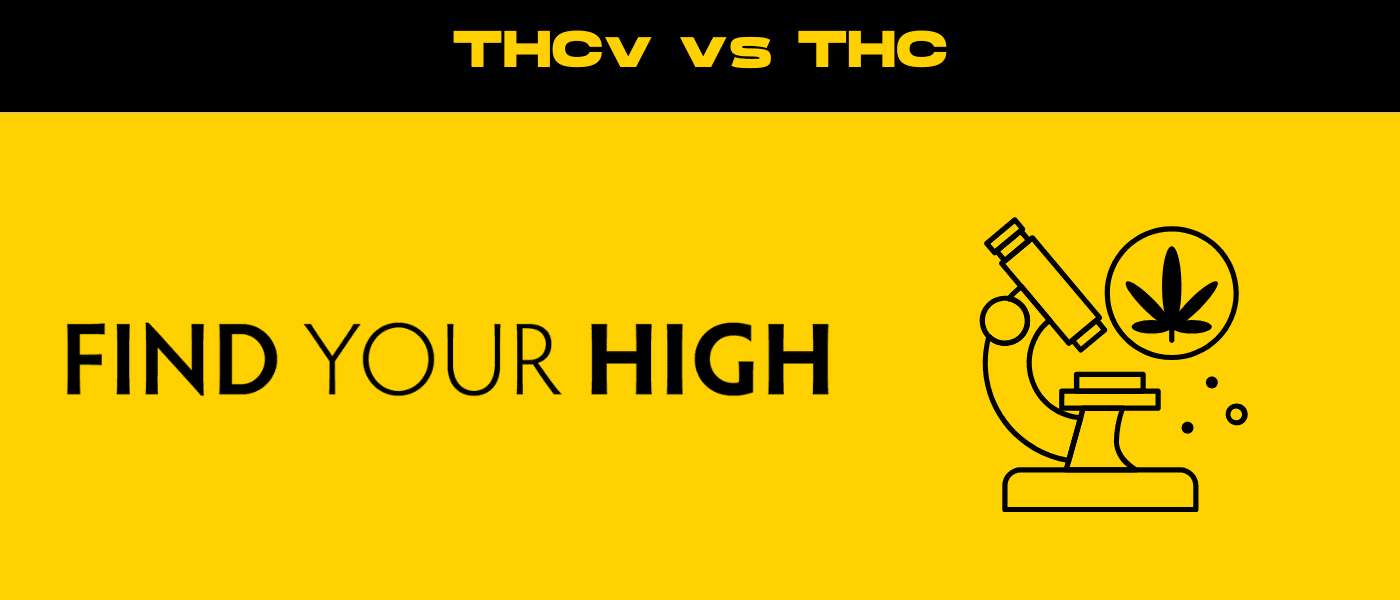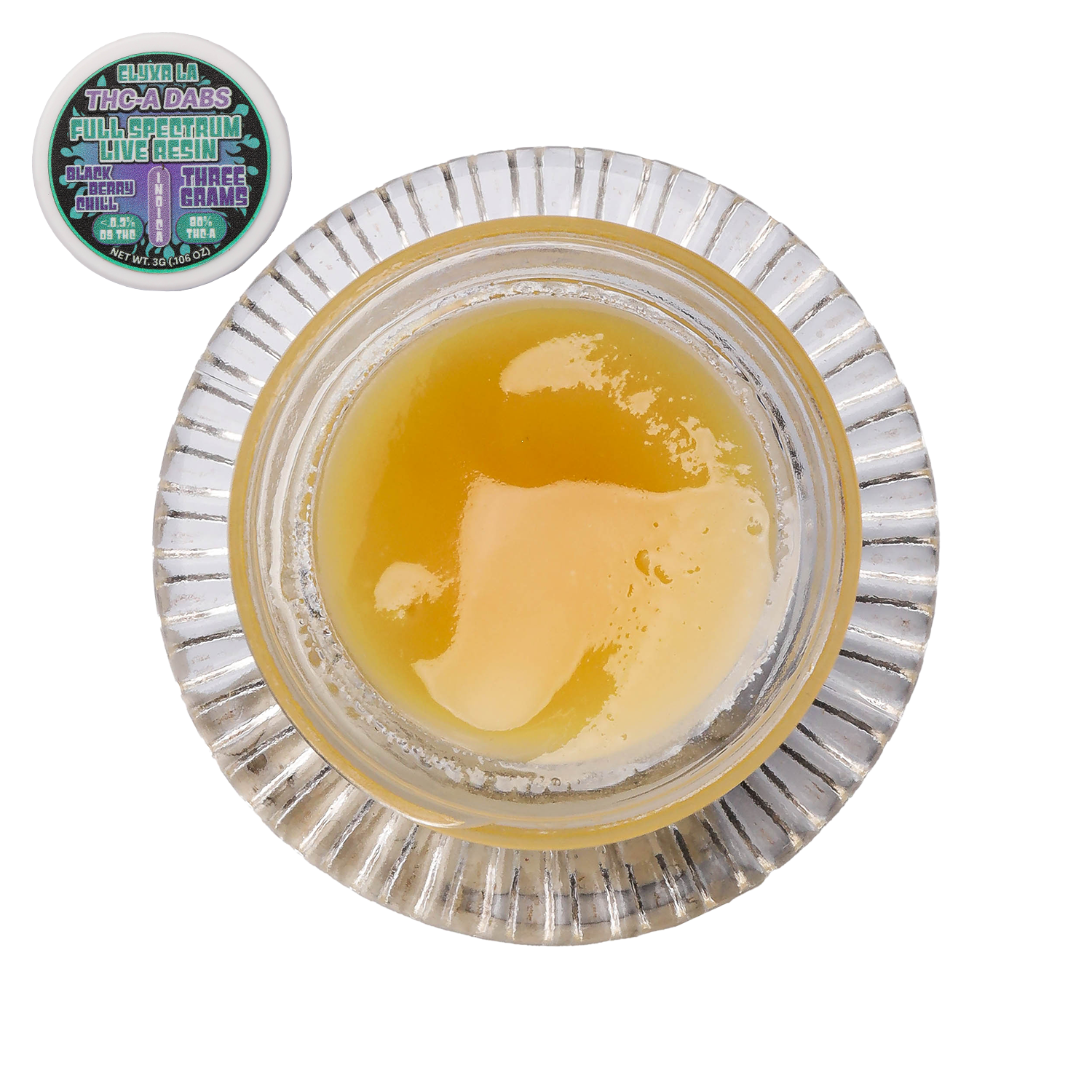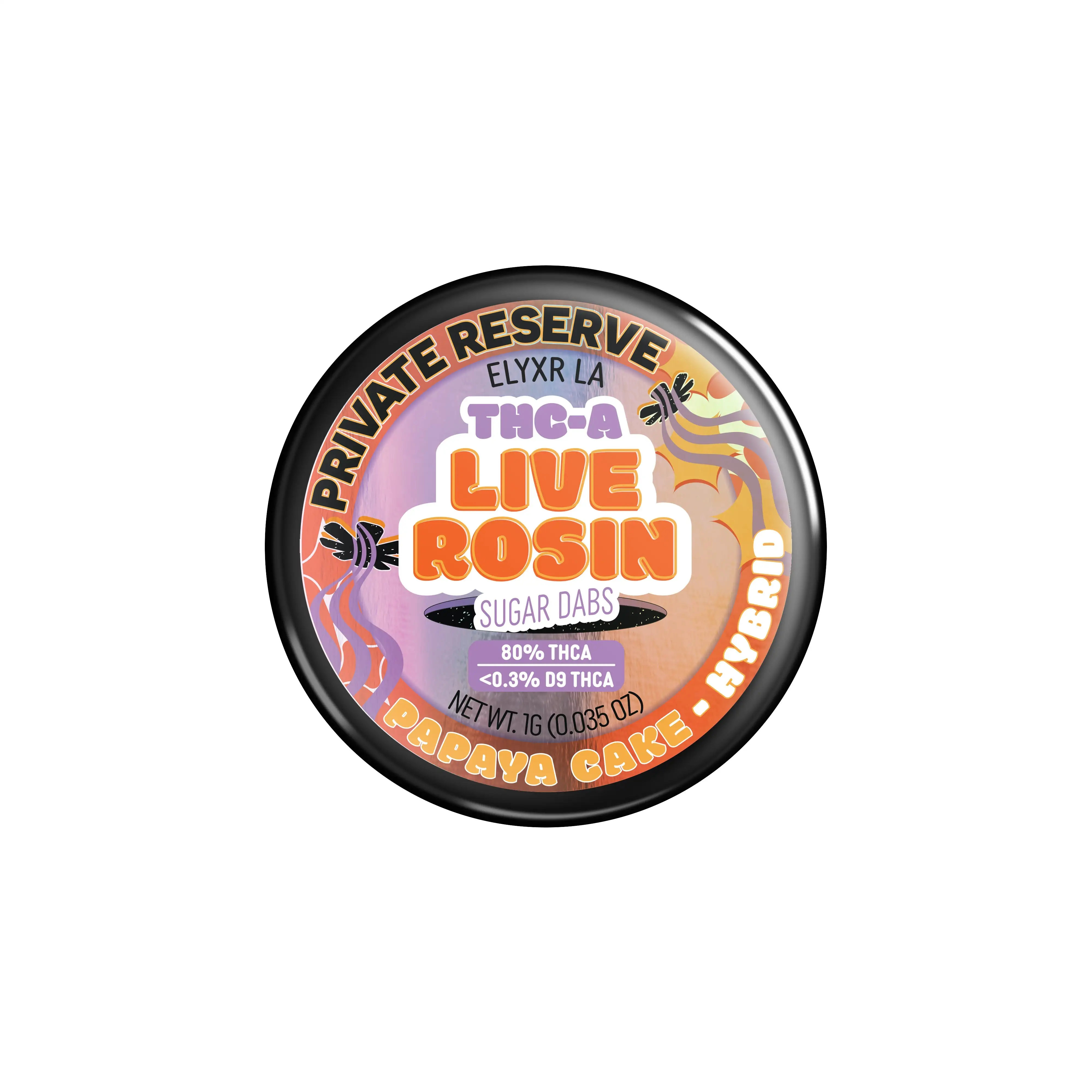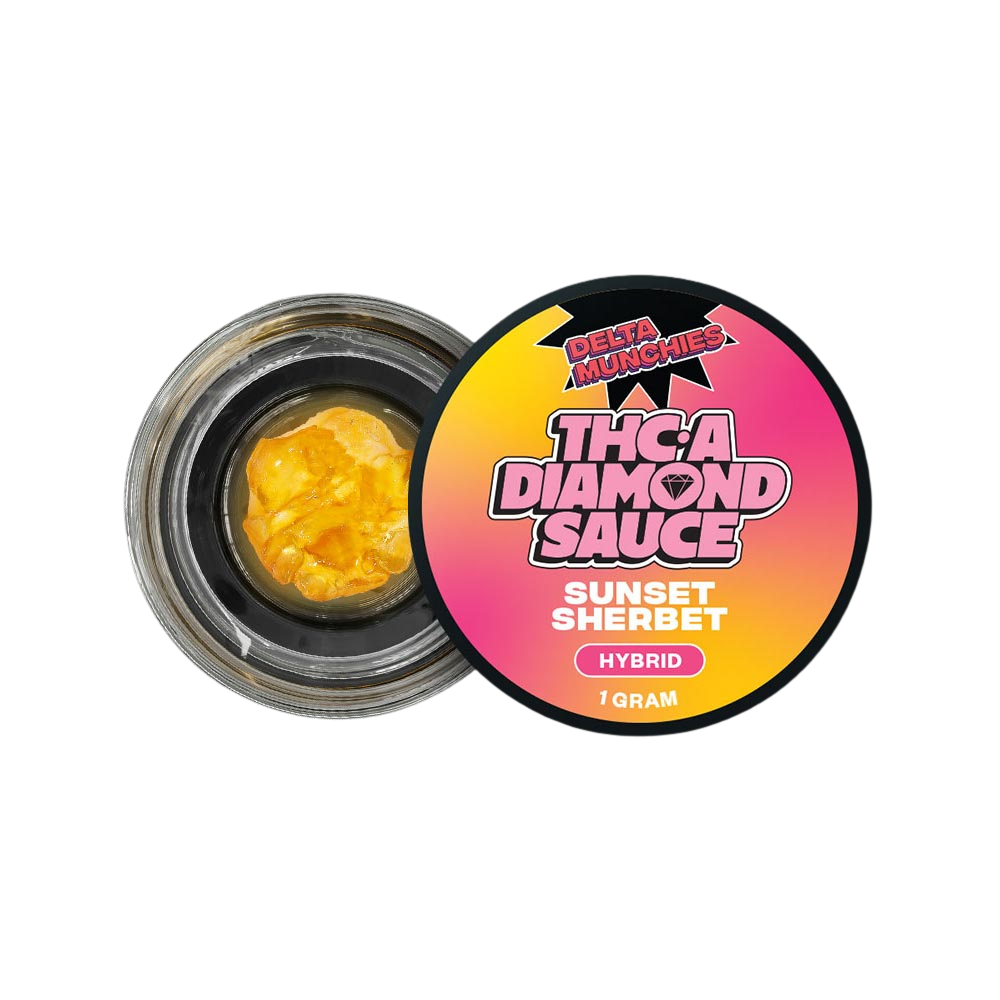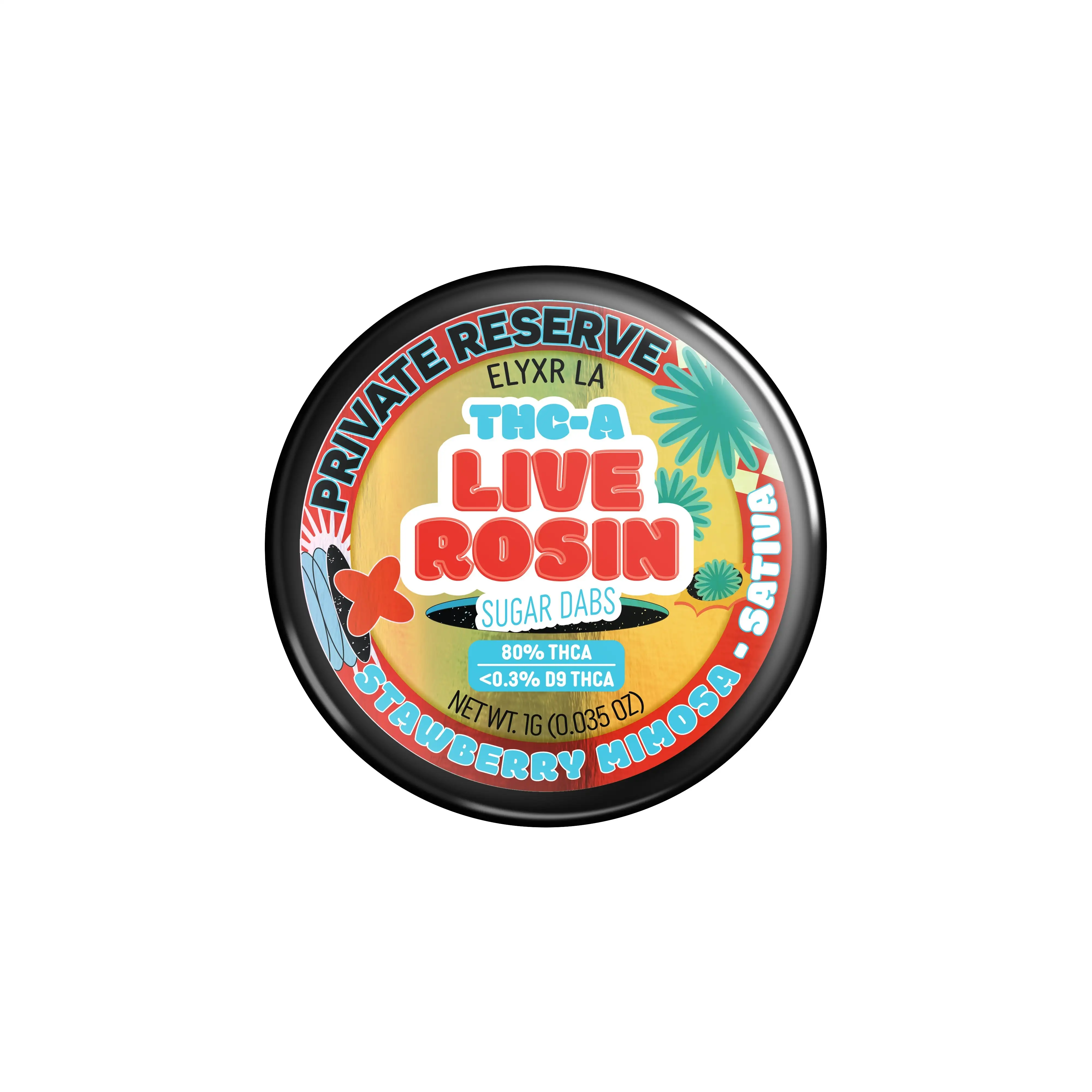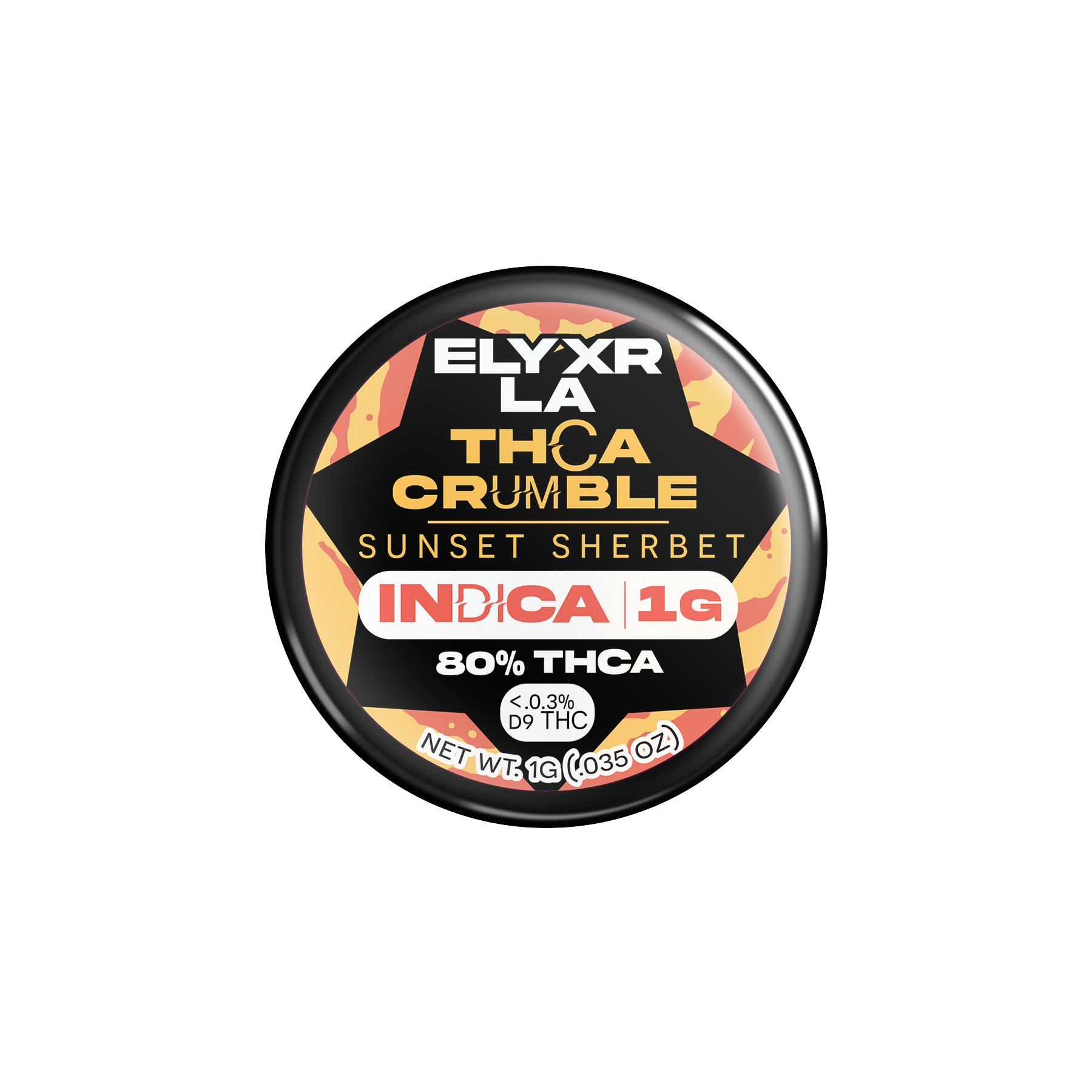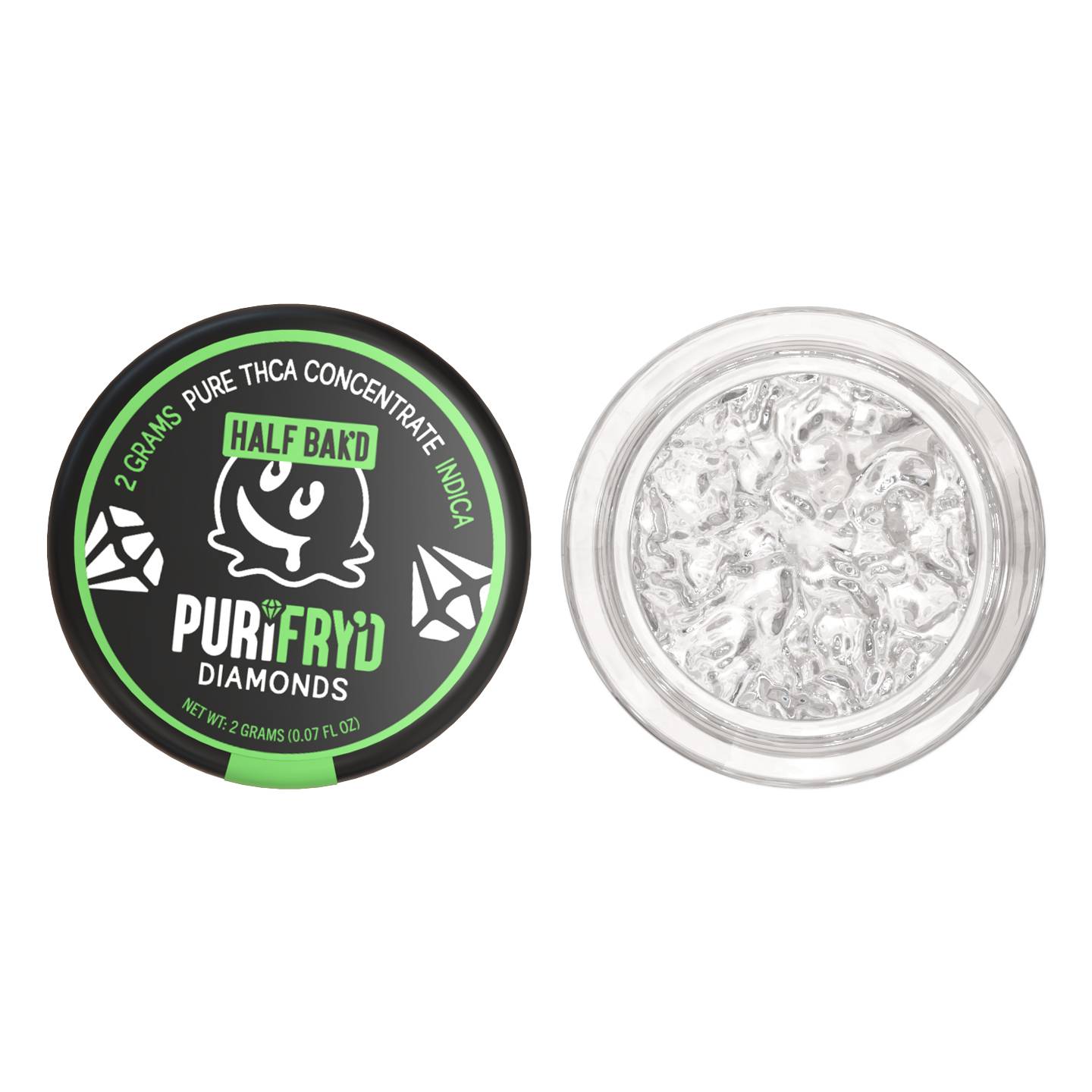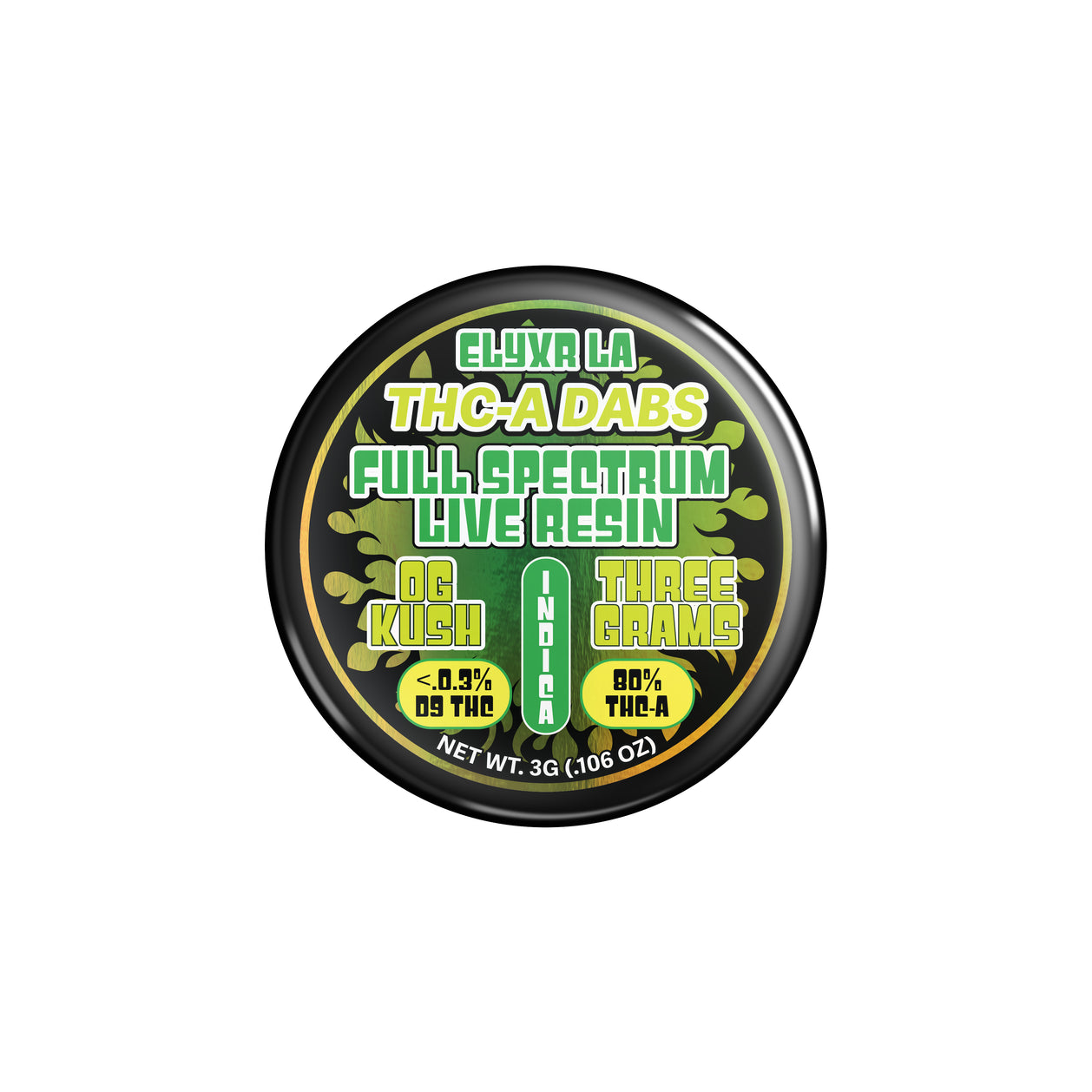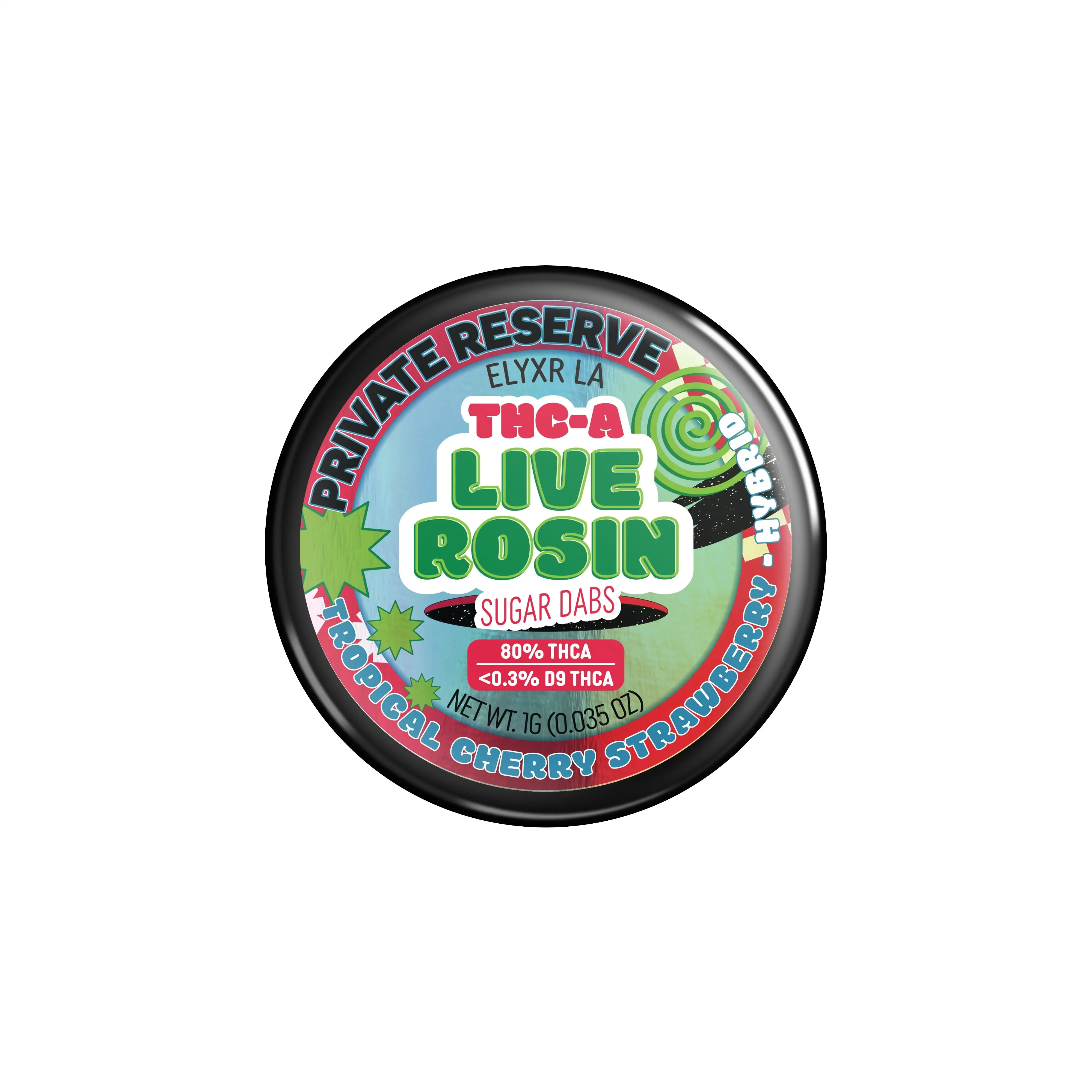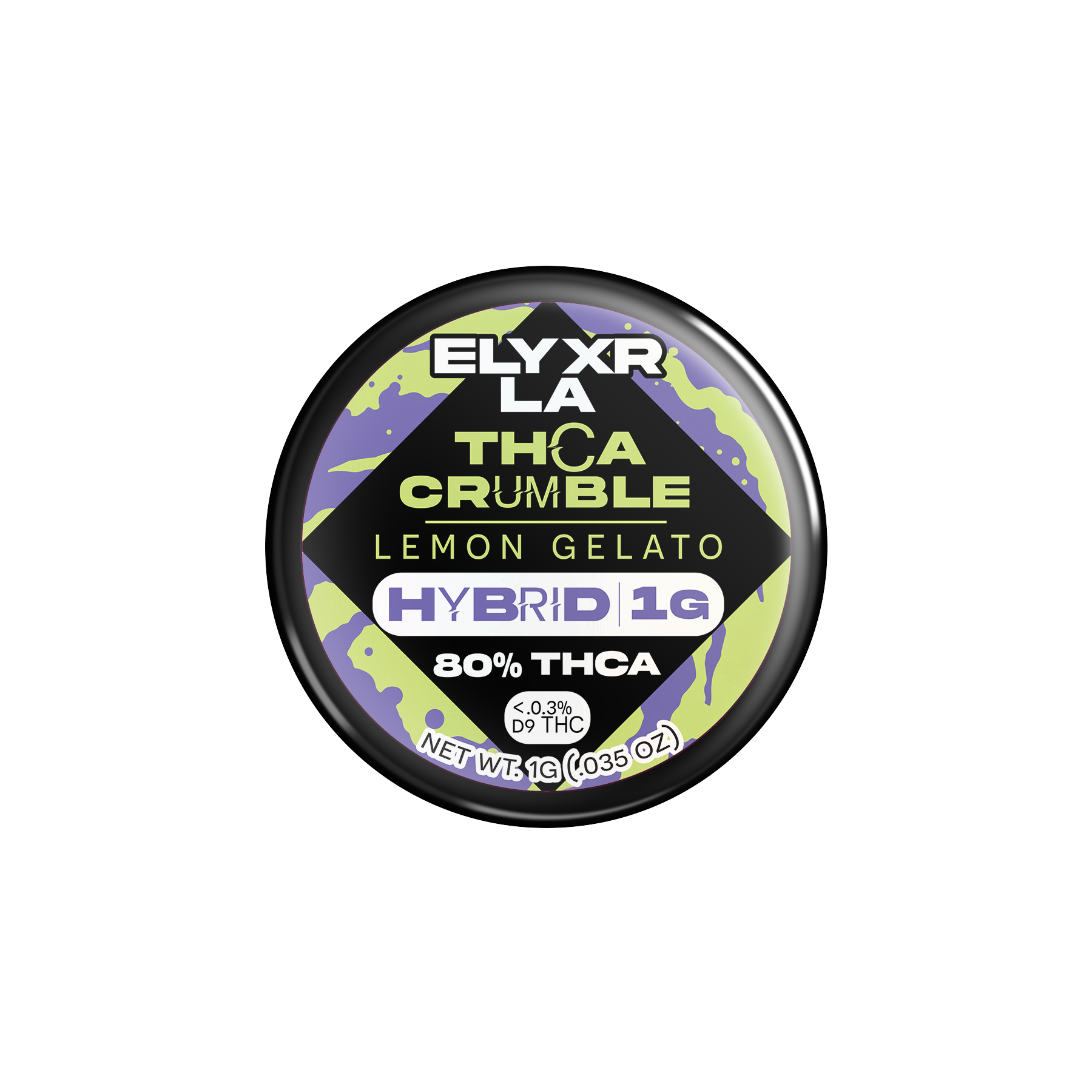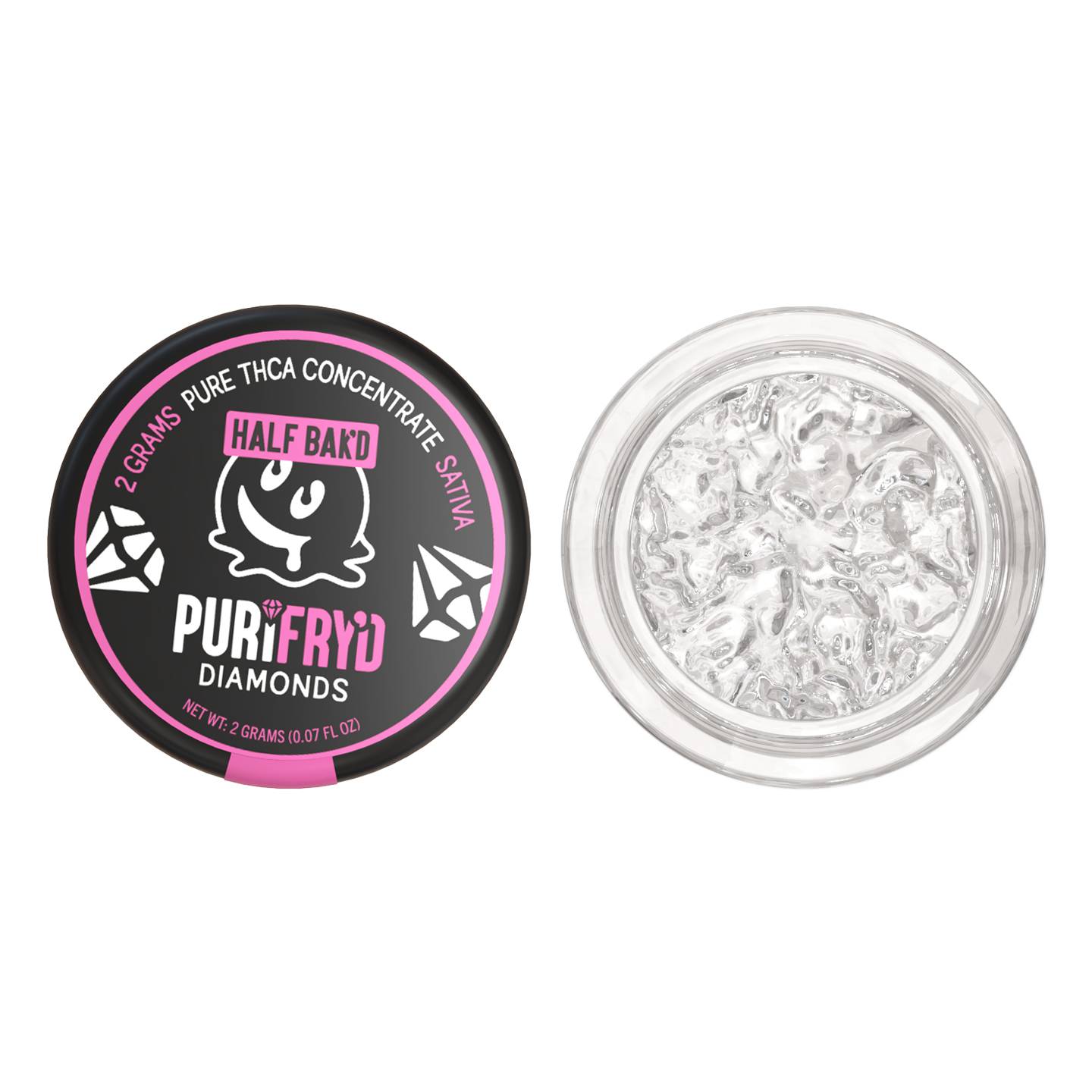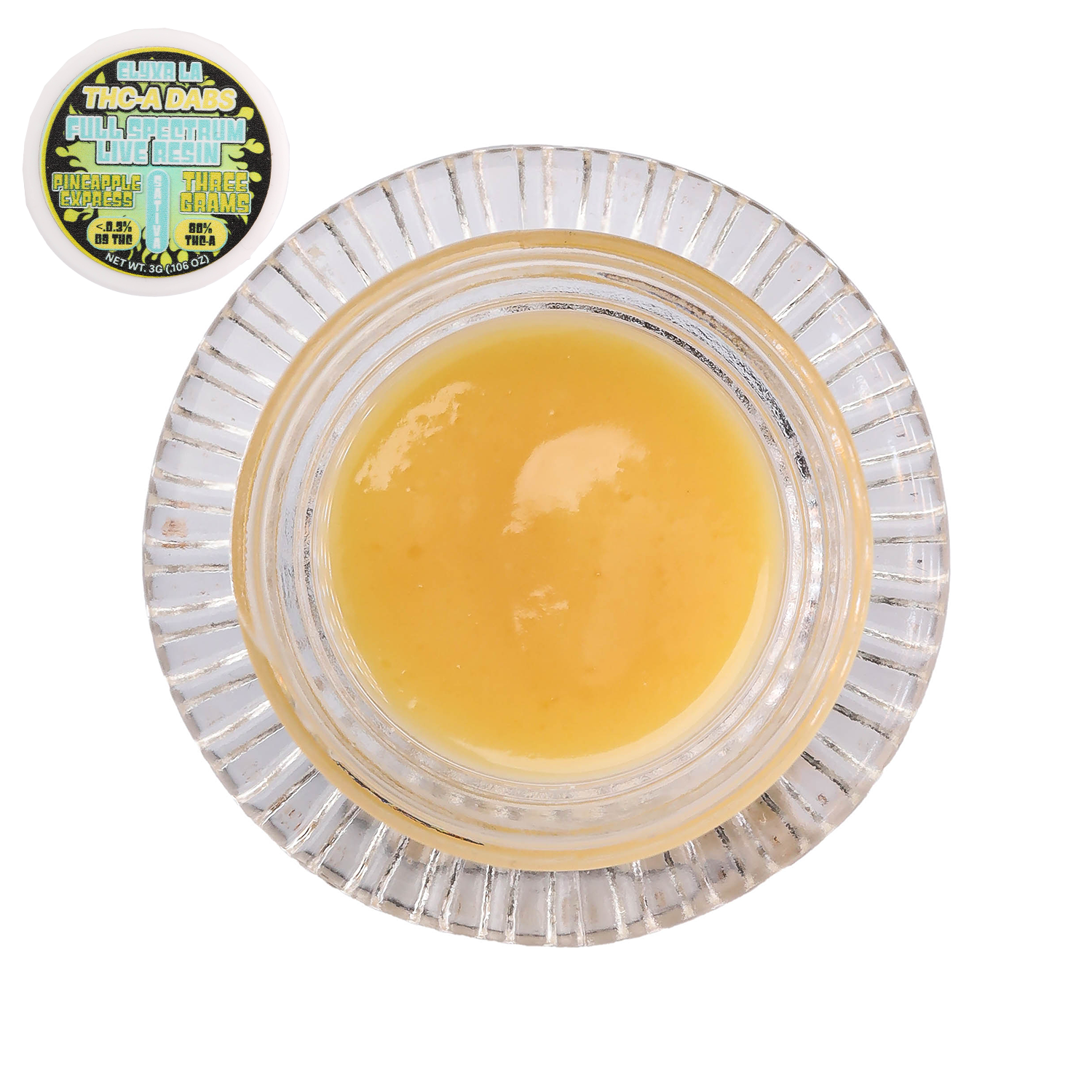When exploring cannabis compounds, most people immediately think of THC, the primary psychoactive compound responsible for the classic euphoric high. But the cannabis plant contains hundreds of other cannabinoids, including THCv, which is gaining attention for its unique properties.
The debate of THCv vs THC is not just academic; it’s practical for anyone curious about how different cannabinoids interact with the body’s endocannabinoid system, their psychoactive effects, and their potential therapeutic benefits. Whether you’re interested in weight management, pain relief, or simply understanding psychoactive properties, knowing the most notable differences between these two cannabinoids is essential.
What is THC?
THC, or tetrahydrocannabinol, is the cannabinoid most associated with the intoxicating effects of cannabis sativa and Cannabis indica strains. THC binds primarily to cannabinoid receptors in the brain, particularly CB1 receptors, to produce psychoactive effects. These interactions with the endocannabinoid system lead to classic outcomes such as:
- Euphoria and relaxation
- Appetite stimulation (aka the “munchies”)
- Sensory enhancement
Most cannabis strains naturally produce THC, and its potency varies depending on genetics, cultivation, and cannabis consumption method. THC also has recognized therapeutic benefits, including pain relief, anti-nausea effects, and potential reductions in anxiety, though high doses can trigger THC induced cognitive impairments.
What is THCv?
THCv (tetrahydrocannabivarin) is a naturally occurring cannabinoid found in certain sativa strains, such as Durban Poison, but usually in low concentrations. Unlike THC, THCv can act as a neutral antagonist at CB1 receptors at lower doses, meaning it may temper some of THC’s intoxicating effects while still offering physiological effects.
THCv is drawing attention for its potential appetite suppressing properties, effects on energy metabolism, and blood sugar regulation, making it a promising potential candidate for weight management and diabetes management. Early THCv research in healthy male human volunteers and preliminary studies suggest that this unique cannabinoid may help with appetite control and glycemic and lipid parameters, though research continues to confirm these findings.

Chemical Structure and Main Structural Difference
The main structural difference between THC and THCv is subtle but impactful: THCv has a propyl side chain instead of THC’s pentyl chain. Despite the similar molecular structure, this minor variation alters the way THCv interacts with the body’s endocannabinoid system, especially at cannabinoid receptors.
- THC: longer alkyl side chain → stronger intoxicating properties
- THCv: shorter chain → can suppress appetite at lower doses, sometimes reducing THC’s psychoactive effects
This chemical structure difference also explains why THCv may produce antipsychotic effects, whereas THC is primarily psychoactive.
Psychoactive Effects: THC vs THCv
The psychoactive properties of THC and THCv are among the most notable differences between these cannabinoids:
- THC produces intoxicating effects, including euphoria, relaxation, and heightened sensory perception.
- THCv, especially at lower doses, often has non psychoactive properties. Some users report feeling energized or clear-headed rather than intoxicated.
Interestingly, at higher doses, THCv can produce psychoactive effects similar to THC, but often with less sedation. This has made THCv an attractive cannabinoid for daytime consumption in sativa strains.
Appetite and Weight Management
One of the biggest draws of THCv is its potential appetite suppressing properties:
- Unlike THC, which can stimulate appetite, THCv may suppress appetite at low doses, earning nicknames like “diet weed.”
- This appetite suppressing effect is being explored for weight loss and weight management.
- Preliminary studies suggest THCv may influence energy metabolism, pancreatic beta cell function, and glycemic and lipid parameters, highlighting potential benefits for diabetes management.
In contrast, THC is more likely to stimulate appetite, making it useful for patients needing to increase caloric intake due to illness or treatment.
Potential Therapeutic Benefits
Both THC and THCv have potential therapeutic benefits, but they differ in scope:
THC potential benefits:
- Pain relief
- Anti-nausea
- Anti-anxiety in some users
- Relaxation and sleep support
THCv potential benefits:
- Appetite control and weight loss support
- Blood sugar regulation
- Possible antipsychotic effects
- Support for energy metabolism
Preliminary studies, including placebo controlled, parallel group pilot studies, and crossover pilot trials, show promise for THCv administration in managing glycemic and lipid parameters, though research continues to confirm these effects.

Duration and Onset of Effects
The physiological effects of THC and THCv vary based on cannabis consumption method:
- THC: effects typically onset quickly when inhaled (minutes) and last 2–4 hours; edibles have slower onset (30–90 minutes) and longer duration.
- THCv: onset may be faster with non psychoactive properties at lower doses, and duration of psychoactive effects can be shorter than THC.
Understanding these differences is key for precise dosing, especially for therapeutic purposes.
Methods of Consumption
Both cannabinoids can be found in a variety of cannabis products:
- Smoking or vaping cannabis strains
- THCv isolates in edibles, tinctures, or capsules
- Combination products with other cannabinoids for a balanced effect
Consumption method influences the intensity and duration of psychoactive effects, as well as potential benefits like appetite suppression or pain relief.
Legal Status
The legal status of THC and THCv differs significantly:
- THC is regulated as a controlled substance under the Controlled Substances Act in the U.S., though hemp-derived THC under 0.3% delta 9 THC is federally legal.
- THCv is mostly considered THCv legal if derived from hemp, but remains a legal gray area due to its novel cannabinoid status.
- Local regulations may vary, so always check local laws before purchasing THCv products.
Internationally, research and monitoring agencies continue to evaluate both cannabinoids for safety and legality.
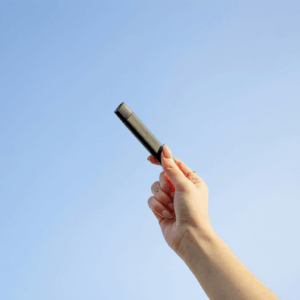
Drug Testing Considerations
Another practical concern is whether THC and THCv will trigger a drug test:
- THC: commonly screened due to THC induced cognitive effects and THC metabolites lingering in the body.
- THCv: although non psychoactive properties at low doses are common, it may metabolize similarly to THC, creating a risk of detection in workplace testing.
For users interested in weight management or energy metabolism without compromising testing, precise dosing and awareness of cannabis consumption method are key.
Conclusion: THCv vs THC – Which is Right for You?
The THCv vs THC debate illustrates the incredible diversity within the cannabis plant. Key takeaways include:
- Psychoactive effects: THC produces intoxicating effects; THCv may offer energy and non psychoactive properties at low doses.
- Appetite: THC stimulates appetite; THCv may suppress appetite and aid weight management.
- Potential therapeutic benefits: THC helps with pain relief, nausea, and relaxation; THCv shows promise for blood sugar regulation, energy metabolism, and antipsychotic effects.
- Legal and drug testing considerations: THC is more strictly regulated; THCv exists in a legal gray area. Both can show up on drug tests under certain conditions.
For those exploring cannabis products, THCv and THC each offer unique properties. Whether your goal is weight management, pain relief, or simply experimenting with different cannabis compounds, understanding the key differences allows for safe, informed, and effective use.
As research continues, we expect to learn more about THCv administration, its potential benefits, and how it may complement or contrast with the psychoactive properties of THC. In the meantime, always choose reputable brands, start with lower doses, and consider your goals carefully when selecting THCv products or traditional THC products.
THCv vs THC: Frequently Asked Questions
1. What are the benefits of THCV?
THCv offers a range of potential benefits beyond its unique psychoactive properties. Early THCv research and preliminary studies suggest it may help with appetite control, weight management, and blood sugar regulation, making it a promising potential candidate for diabetes management. Other reported potential health benefits include energy metabolism support, antipsychotic effects, and possible pain relief. While research continues, THCv administration shows exciting promise compared to more common cannabinoids.
2. Which is stronger THC or THCV?
When it comes to intoxicating effects, THC is generally stronger. THC binds robustly to CB1 receptors in the body’s endocannabinoid system, producing the classic euphoric high and other psychoactive effects. THCv, at lower doses, often exhibits non psychoactive properties and can even suppress appetite rather than stimulate it. At higher doses, THCv can produce some psychoactive effects, but it usually remains less intoxicating than THC, making it appealing for those seeking the therapeutic benefits of cannabis without a strong high.
3. Is THCV energizing?
Yes, THCv appears to be more energizing than THC, especially at lower doses. Unlike THC, which can sometimes induce sedation, THCV often produces clear-headed, stimulating effects that many users describe as uplifting or mentally alert. This makes THCv products popular for daytime use or situations where focus and energy are desired, while still potentially offering appetite suppressing effects and other physiological benefits.
4. How does THCV affect the brain?
THCv acts differently than THC on the brain and nervous system. THC primarily activates CB1 receptors, producing intoxicating effects and euphoria. THCV, however, interacts with the body’s endocannabinoid system in a more nuanced way:
- At low doses, it may act as a neutral antagonist at CB1 receptors, limiting some of THC’s psychoactive properties.
- It may also modulate transient receptor potential channels, influencing energy metabolism and physiological effects.
- Early research in healthy male human volunteers suggests THCV could contribute to blood sugar regulation, weight management, and even antipsychotic effects.
In short, THCV offers unique properties that make it distinct from THC, providing some therapeutic benefits without the intense intoxicating effects many associate with traditional THC.




